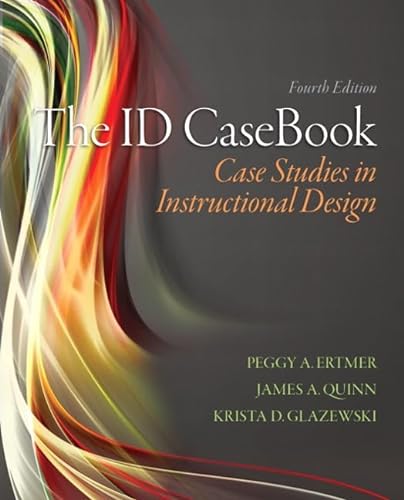The esteemed author team of Peggy A. Ertmer, James A. Quinn, and Krista D. Glazewski presents the Fourth Edition of The ID CaseBook: Case Studies in Instructional Design-an award-winning text for instructional design-preparing the next generation of instructional design professionals with open-ended cases that strengthen and encourage successful problem solving, and conceptual, procedural, and analytical skills to be used with a variety of real-world clients and the execution of creative solutions on the job. The Fourth Edition of this highly regarded problem-solving text presents 30 realistic case studies in a wide range of authentic contexts, from K-12 to post-secondary, corporate, and manufacturing. The cases and their accompanying discussion questions encourage ID students to analyze the available information, develop conclusions, and consider alternative possibilities in resolving ID problems.
Peggy A. Ertmer is Professor of Learning Design and Technology at Purdue University. She continues to love teaching with case studies and is finding more and more connections between case-based learning and the development of ID expertise. Peg actively mentors both students and peers, including pre- and in-service teachers, in the use of case-based and problem-based learning (PBL) pedagogy, online teaching and learning, and self-regulated learning skills.
James A. Quinn is Associate Professor of Education at Oakland University where he teaches courses in instructional design. He continues to enjoy teaching with cases and grappling with the considerable challenges of doing so. Jim is very happy that the ID Casebook has reached its 15-year milestone and hopes that it continues to be a resource for ID students and instructors for many more years.
Krista D. Glazewski is Associate Professor of Instructional Systems Technology at Indiana University. Her research interests include supporting complex problem solving in problem-based learning. She works predominantly with K-12 teachers, supporting them as they transition their instructional approaches and their students to more open-ended environments.
![]()
